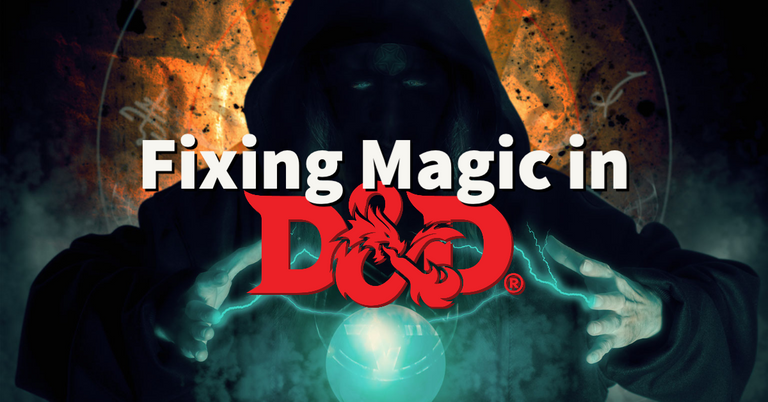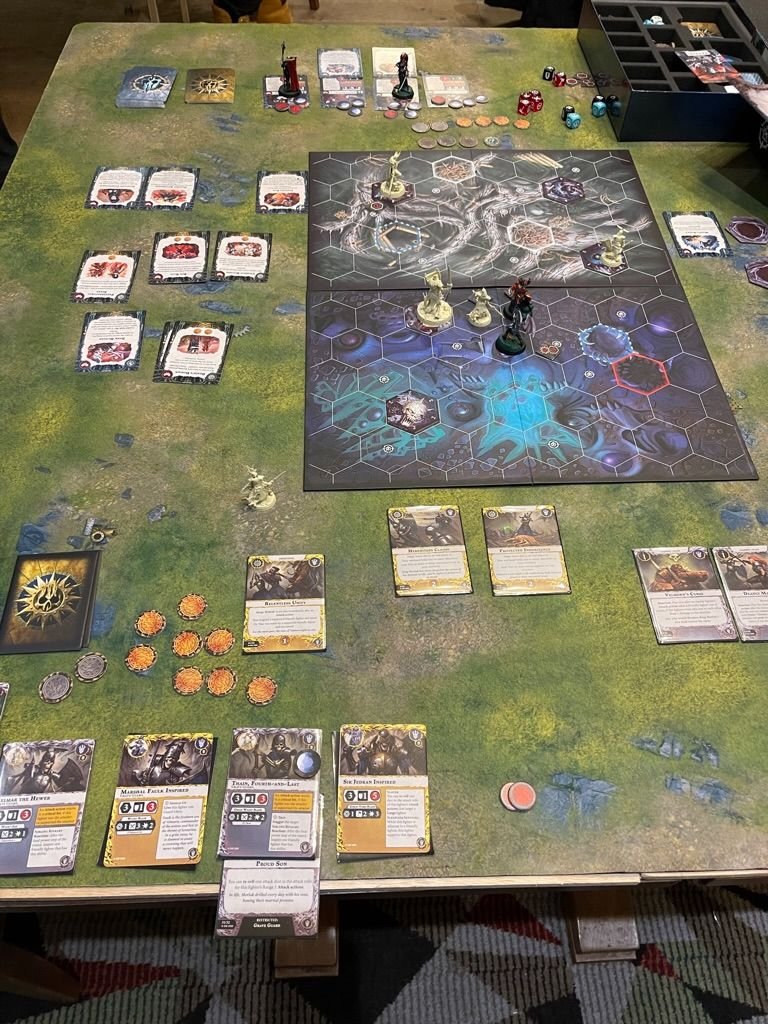
Have you ever wondered why magic is how it is in D&D?
Did you know that the lore behind magical spells in D&D 5E tells us that the wizard literally forgets a spell once it has been cast?
That just doesn't sit well with me. Of all the magical systems they could have gone with, why choose the one that is basically selective amnesia?
Don't get me wrong, magic users are my favorite character archetype in roleplaying games. Heck, back when the Gauntlet Arcade game came out I would choose to play the Wizard even though he was a pretty flimsy guy!
The Vancian magic system
Apparently, the inspiration (and in my opinion, the blame) for this can be laid with the Jack Vance Dying Earth novels.
"In the Vancian model of magic, magic users must memorize all the spells which they wish to cast. When they cast a given spell, it disappears from memory and must be memorized again if the magic user so desires"
How bizarre is that?
Gary Gygax had noble intentions, and of course, it always comes down to game balance issues:
If magic is unrestrained in the campaign, D&D quickly degenerates into a weird wizard show where players get bored quickly... It is the opinion of this writer that the most desirable game is one in which the various character types are able to compete with each other as relative equals, for that will maintain freshness in the campaign.
The idea of using a Vancian-inspired magic system in Dungeons & Dragons was to create constraints on magic users and to balance the experience of playing the game.
The Legacy of the Vancian System of Magic
I have a theory that picking a set of spells from a large list of possible spells for your experience level lead to mechanics on popular, modern card game systems.

In fact, when I play D&D, I have my cards out in front of me just as if I am playing Magic the Gathering.
And when I have played a card, or rather cast a spell, I discard that spell/card into a pile because I probably can't use it again.
But D&D isn't a card game, a wizard would not forget a spell they had just used!
What D&D Gets Right with Magic
In my imagination magic would take a lot of the good from D&D that has developed over the years.
First of all, I like that there are two types of magic; Arcane and Divine, and both are part of the natural order of things.
Arcane Magic is what you might think of as traditional wizardry, where the source is the natural world around you, and Divine is where the source of your magic is a patron deity or demon.
I also like the separation between Cantrips, which are spells you never run out of, and learned, looted, or gifted abilities that have to be gained or worked for.
For a while, Druids used a form of magic called Primal, which showed it was neither a patron nor the mystical arts, but they settled in 5E on just the two kinds, hand-waving that a Druid's patron is, essentially "Mother Nature".
Fixing Magic Spell Slots with Home Rules
For me having that Nature, Mystical, and Divine split was cool. Especially when we think in terms of not spell slots but how much magic "juice" you have in reserve to spend.
Consider something like a flame versus a fireball, the latter would use more "magic" (Mana?) than the former. And then a magic missile would use even more. Using the spell would drain your magic battery or magic source until replenished.
Something super overpowered like "Wish" would use a tremendous amount of power, it wouldn't be sufficient to just learn the spell but you would have to train everything about yourself to achieve something of that magnitude.
Divine magic would be replenished by spending time in holy places or in prayer, magic sourced by nature would be topped up by time resting in the sun, eating well, hugging trees, etc, and mystical/cosmic power might come from meditation or the wizard equivalent of kata.
Alternatives to Learning and Forgetting Spells
I think there should be three categories of magic, let me know if you agree:
Innate Magic - Something like night vision or telepathy could be completely natural and innate to a certain creature but seem like a superpower to humans. Consider superhero abilities as being magical but not about casting spells. This need not necessarily be a creature or being, but could be a magical crystal or element that produces a result when interacted with.
Cantrips - These are magical acts that are so well practiced they become muscle memory, second nature plus barely touch your magical reserves. A cantrip can also be applied to clothing, armor, weapons, and jewelry so that the person in possession can perform the action without having the magical ability. Consider a flaming sword or amulet of protection.
Spells - Spells are complex and need to be learned and can involve mental, vocal, or physical elements, including petitioning a patron. HOWEVER once "cast" a spell can be stored in a magical artifact, and that artifact could have a store or source of magical energy sufficient for one or many uses.
Making Magic Dramatic
A final idea, because this is getting quite long, is to add some wildness to magic, especially magic that the user has not practiced quite as much.
What if casting the spell comes with risks?
You could say any success other than a natural 20 requires rolling against a table.
Or you could roll a D6:
- Critical Fail - Failure with damage
- Fail with Complication - Fail plus some setback
- Simple fail - Nothing happens, try again with some power drain
- Success with Complication - Your spell succeeds, but not how you planned
- Simple Success - Spell succeeds exactly as intended
- Critical Success - Spell succeeds in spectacular fashion!
Over to You
What do you think?
DO you like the way that 5E has magic now? Do you have any home rules?
I like the magic system used in FFG's Genesys rules. Magic is always innately dangerous, and challenge dice can result in complications because they are always involved in the roll. D&D is simply an old system that doesn't inherently allow that kind of nuance without a lot of fudging like you suggest.